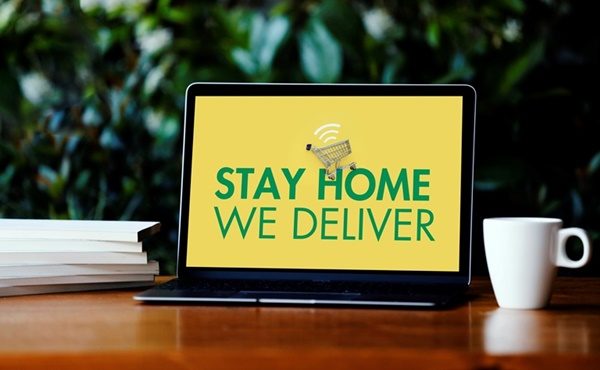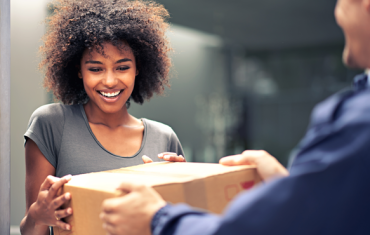With the Federal Government announcing tighter shutdowns and social distancing restrictions in the wake of COVID-19, an increasing number of Aussies are turning to online channels to minimise the risk of person-to-person contact.
Parcel delivery service CouriersPlease (CP) explains how the virus risks and new laws have impacted deliveries and what this means for Aussies.
Jessica Ip, spokesperson for CP, says couriers and retailers are playing an integral role in ensuring Aussies can access the items they need as the pandemic worsens and social distancing policies ramp up.
“With the government advising people to stay home unless it’s absolutely necessary to go out, online shopping and home deliveries are enabling them to stay safe by minimising their level of physical contact.”
A lot has changed with increasing restrictions, travel bans and business closures, which have, in turn, impacted the way couriers and other businesses are operating.
For instance, to protect its drivers and customers, CP has implemented stringent measures to reduce risks of infection in its network and to those in the community. These include implementing a contactless delivery experience where customers will not be required to provide a physical signature, and in its place, photo proof the delivery was made to the intended address.
“In addition, we have also implemented extra sanitisation practices, daily mandatory temperature checks of all drivers and mandated strict social distancing guidelines when delivering to customers,” she adds.
CP reveals eight ways new shutdown laws and virus risks have changed deliveries and retail purchases, and what it means for you.
1 Delays in the dispatch of online orders. A significant increase in online shopping for essential items may mean longer wait times as stores struggle to restock to fulfil demand. The online shopping portals for Woolworths and Coles have experienced a 189 per cent increase in orders since March when panic-buying was leaving some shelves bare. CP has seen a spike in delivery volumes among a number of retail partners for products including toilet paper, office supplies and gym equipment.
2 Overseas and domestic deliveries may be impacted. A number of courier companies have advised that international deliveries may be delayed due to flight cancellations and government restrictions across the globe. Domestically, most carriers have advised customers of potential delays as network operations may be impacted due to additional government restrictions being implemented. CP has advised customers to allow an additional business day for expected deliveries given COVID-19 restrictions, and will continue to update their customers if the nature of the pandemic evolves and impacts services further.
3 The arrival of autumn and winter stock will likely be delayed. Supply chains have been affected by cities shutting down and factories and ports being suspended. Shoppers are likely to notice a delay in the arrival of autumn and winter clothing and items such as heaters. Last month, one in six Australian businesses already noticed the effects of COVID-19 on distribution and manufacturing.
4 Parcels will be delivered via contactless delivery. To maintain social distancing, all courier companies should have by now trained their drivers to make contactless deliveries. Some parcel delivery providers will take a photo of the delivered package, others will sign on the customer’s behalf, and others will take the name of the recipient who accepts the parcel.
CP drivers, for instance, now knock on a customer’s door before stepping back 1.5 metres or as far back as safe, before obtaining a ‘verbal signature’ from the recipient. Food delivery apps have also introduced a ‘leave at door’ option for customers where drivers send a text to the customer once they’ve placed the order at the door. These measures help both the delivery driver and recipient stay safer by limiting direct contact and help those in self-isolation minimise the potential spread.
5 Depots have implemented strict sanitisation practices. If you think that the handling of your parcel could present a risk, rest assured that many courier companies have implemented stringent anti-viral policies. CP, for instance, has implemented a raft of measures to safeguard against the spread even before the government mandates kicked in. These include wiping down of vehicles and steering wheels, access to hand sanitiser or soap in vans, wearing gloves where possible, and practicing social distancing.
Additionally, all CP locations and depots have implemented daily non-contact temperature checks for every individual entering their sites, stringent social distancing measures, work-from-home arrangements where possible, and cancellations of travel and group meetings.
6 Customer call centres might be impacted. Parcel delivery companies are currently seeing higher-than average customer call volumes and are asking customers to be patient during this time. For some delivery companies, mandated shutdowns and lockdowns by overseas governments have resulted in many overseas-based call centres either closing or migrating their operations to home environments.
The CP customer care team is answering all queries despite the shutdowns by offering phone support between 9am to 5pm, Monday to Friday and asking those unable to get through to lodge their enquiries via the contact form on the CP website.
7 Retailers and parcel delivery companies are sending regular updates to keep consumers informed. Customers should sign up to alerts with their carrier and retailers to stay up to date with coronavirus-related changes and announcements. CP is maintaining regular contact with customers to inform them of changes to delivery procedures and to maintain strong communication channels during what can sometimes be a confusing time. This is to reassure the local communities that safety and wellbeing is the top priority while carrying out essential parcel deliveries.
8 Your courier company wants to know if you’re feeling unwell. Parcel delivery companies are asking customers who are expecting a delivery or pick up to inform them ahead of time if are self-isolating due to recent travel, have been tested positive or are showing symptoms of illness. Many companies will simply leave the parcel at the door and alert the customer via text, email or call. Even if you are not isolating or showing symptoms, customers should always maintain the recommended 1.5-metre social distancing measure and continue to practice good hygiene.







